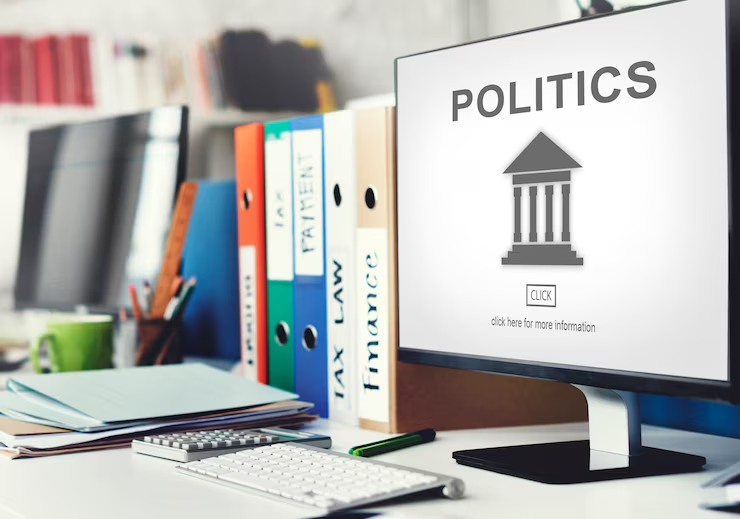The Potential for Future Federal Regulation of CBD
Table of Contents
The rapid rise of cannabidiol (cbd roll on for pain) as a mainstream wellness product has outpaced the existing regulatory framework in the United States. While the 2018 Farm Bill legalized industrial hemp, which includes CBD derived from hemp plants, Federal Regulation of CBD remains a murky and evolving issue. As the market grows and consumer use becomes more widespread, the push for clear, nationwide oversight is gaining momentum.
In this blog post, we’ll explore what current laws say, how the regulatory landscape might change, and what future Federal Regulation of CBD could mean for consumers, businesses, and the health industry as a whole.
The Current Status of Federal Regulation of CBD

As it stands, CBD is in a gray zone of regulation. The U.S. Food and Drug Administration (FDA) has only approved one CBD-based medication—Epidiolex, for treating rare forms of epilepsy. All other CBD products, including oils, edibles, topicals, and beverages, are technically not FDA-approved for any medical use or general wellness claims.
While the 2018 Farm Bill removed hemp-derived CBD from the Controlled Substances Act, it did not legalize CBD in food, drinks, or dietary supplements. This lack of consistent oversight has led to a marketplace full of unregulated, mislabeled, or unsafe products.
Why Future Federal Regulation of CBD Is Likely

Several key factors are driving the need for Federal Regulation of CBD:
1. Consumer Safety Concerns
Numerous independent studies have shown discrepancies in the labeling of CBD products. Some contain more or less CBD than advertised; others are contaminated with heavy metals, pesticides, or even THC levels above legal limits. Federal regulation would establish safety, testing, and labeling standards to protect consumers.
2. Market Oversaturation and Quality Control
With thousands of brands competing in the market, quality and consistency vary dramatically. Regulation would help streamline the industry, weeding out subpar products and allowing trusted companies to thrive.
3. Clear Legal Pathways for Businesses
Lack of clarity around Federal Regulation of CBD limits business growth. Retailers, especially large chains and pharmacies, remain cautious due to legal uncertainties. A consistent federal policy would unlock new markets and retail channels.
4. Demand from Healthcare Professionals
Medical professionals are increasingly interested in the therapeutic potential of CBD. However, without clear guidelines, it’s difficult to recommend CBD to patients confidently. Regulation could pave the way for expanded clinical research and evidence-based medical use.
What Future Federal Regulation of CBD Might Look Like

While exact details remain speculative, most industry experts expect future regulation to include:
- Standardized labeling and dosage guidelines
- Mandatory third-party lab testing
- Restrictions on health and medical claims
- Age limits and purchase controls
- FDA-approved pathways for food, beverages, and supplements
Regulation may also involve the creation of a new category within the FDA, dedicated to cannabis-derived compounds—bridging the gap between supplements and pharmaceuticals.
Potential Impacts of CBD Regulation
For Consumers:
- Increased confidence in product safety and effectiveness
- Easier access to consistent, well-tested options
- Fewer misleading health claims
For Businesses:
- Greater retail access (e.g., national chains, pharmacies)
- Legal clarity that enables marketing and expansion
- Higher compliance costs and tighter manufacturing standards
For the Government:
- A regulated market could generate significant tax revenue
- Streamlined enforcement and reduction of illegal or unsafe products
FAQs About Federal Regulation of CBD
1. Is CBD currently legal at the federal level?
CBD derived from hemp is legal under the 2018 Farm Bill, but only under certain conditions. It’s not federally approved for use in food, drinks, or dietary supplements.
2. Can the FDA regulate CBD in the future?
Yes, the FDA has the authority to regulate CBD and is currently reviewing how to safely integrate it into consumer products.
3. How would federal regulation help consumers?
It would ensure that products meet strict standards for quality, safety, and labeling—reducing the risks of contaminated or mislabeled items.
4. Will regulation increase product prices?
Possibly. With mandatory testing and compliance, manufacturing costs may rise, but consumers would benefit from better quality and safety.
5. When will federal regulation of CBD be finalized?
There’s no fixed timeline, but ongoing discussions in Congress and the FDA suggest that a regulatory framework may develop within the next few years.
Final Thoughts
As the CBD industry continues to expand and mature, the Federal Regulation of CBD will be essential to ensuring product integrity, consumer safety, and sustainable growth. Whether you’re a consumer, a medical professional, or a business owner, staying informed about these changes is crucial. The future may bring stricter rules, but also a more trustworthy, transparent, and legitimate CBD market.
In short, regulation isn’t a burden—it’s the path forward.







